Noise aversion is a common issue that affects many pets, and it can be challenging for pet owners to identify and manage. Loud noises such as July Fourth fireworks can cause extreme anxiety and stress in pets, which can lead to destructive behaviors, barking, and self-harm as they try to escape from the triggering sound. Our team at Willow Wood Animal Hospital explains this condition and shares practical tips for helping your pet cope with noise aversion.
Noise aversion in pets
Noise aversion is a condition that causes a pet to experience extreme anxiety, fear, or stress in response to loud or sudden noises. This can include a wide range of sounds, such as fireworks, thunderstorms, traffic, construction, or even loud music. Noise aversion can affect all pets and can lead to a variety of physical and behavioral issues if not addressed.
- Physical responses — Some of the physical responses that noise-averse pets have when triggered by certain sounds include panting, pacing, shaking, trembling, and increased heart rate. Pets with severe noise aversion also may exhibit more extreme behaviors, such as hiding, destroying things, or attempting to escape from their environment.
- Behavioral changes — Behavioral changes commonly accompany noise aversion in pets and can include a loss of appetite, changes in sleep patterns, and avoidance of certain areas of the home. Some pets may become more reactive or show signs of separation anxiety during times of loud noise.
How noise aversion affects a pet’s quality of life
Noise aversion can have a significant impact on a pet’s quality of life, both physically and emotionally. Their physical fear responses can be uncomfortable, and their frantic, fearful behaviors can result in self-injury, further reducing their quality of life. Emotionally, the high levels of stress and anxiety noise-averse pets experience also can take a toll on their mental health and overall wellbeing. Over time, an affected pet may lose their sense of safety and security, lose confidence, and become less sociable. Pets with noise aversion may struggle to interact with other animals or people, particularly during times of loud noise. They may become withdrawn, making it harder for them to form bonds with other pets or humans. This can lead to a sense of isolation and loneliness, further reducing their quality of life.
Contributing factors to noise aversion in pets
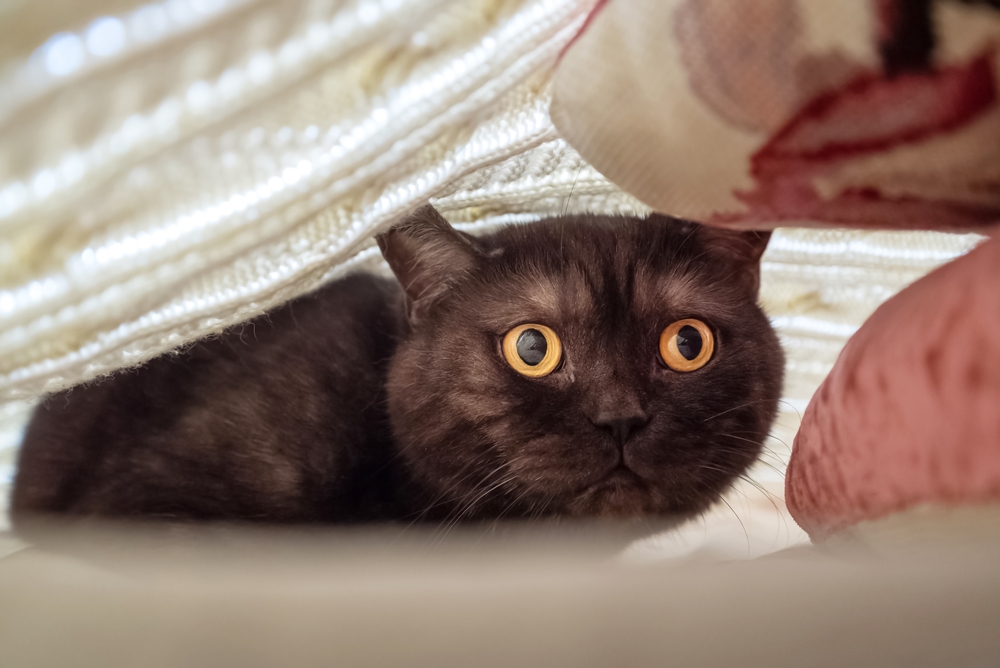
Any pet can be averse to noise, but certain dog breeds, such as herding dogs and working dogs are especially prone to developing the condition. In general, hunting dogs are bred to be unbothered by loud sounds, so they are typically less likely to react to noises such as gunfire. There is no one cause of noise aversion in pets, because it can develop for a variety of reasons. However, additional factors may contribute to the development of this condition, including:
- Traumatic experiences — Pets who have experienced a traumatic event involving loud or sudden noises, such as a car accident or abuse, may be more likely to develop noise aversion.
- Lack of socialization — Pets who have not been properly socialized may be more sensitive to loud noises and unfamiliar situations, and may be more likely to develop noise aversion.
- Age — Older pets may be more susceptible to noise aversion because their hearing may decline with age, and they may become more sensitive to loud noises.
- Environmental factors — Pets who are exposed to frequent or prolonged loud noises, such as a noisy urban environment or fireworks or thunderstorms, may be more likely to develop noise aversion.
While these factors may contribute to the development of noise aversion, the condition also can occur in pets with no known risk factors. Additionally, some pets may be more sensitive to loud noises because of their individual temperament or personality. Understanding the potential causes of noise aversion can help you take proactive steps to manage the condition and reduce the impact it has on your pet’s quality of life.
Tips for managing noise aversion in pets
If you have a pet who suffers from noise aversion, there are ways to help them cope with the distressing sounds and improve their quality of life. Here are some tips for managing noise aversion in pets:
- Create a safe space — Create a safe and comfortable space for your pet to retreat to during times of loud noise, such as a spare bedroom or a crate with a blanket draped over it. Provide your pet with soft bedding, toys, and treats to help keep them comfortable.
- Muffle the noise — Play white noise or calming music during a triggering event to help drown out the distressing sounds and create a more relaxing environment for your pet.
- Desensitize your pet — Desensitization techniques can help reduce your pet’s sensitivity to loud noises over time. This involves gradually exposing them to the noise in a controlled environment and rewarding them for remaining calm. This process can take time and patience, but it can be effective in reducing your pet’s anxiety and fear.
- Use calming products — Pheromone sprays, calming collars, and natural supplements can be used to provide additional support for your pet.
- Consider medication — Veterinarian-prescribed medication may be necessary to help manage your pet’s noise aversion. Anti-anxiety medications can help reduce your pet’s fear and anxiety during times of loud noise, and your veterinarian can help you determine which medication and dose are best for your pet.
Ensure your pet is prepared for the loud booms of fireworks by taking steps now to address their noise aversion. Contact our team at Willow Wood Animal Hospital to schedule an appointment so we can determine the best strategy to keep your pet calm and comfortable.


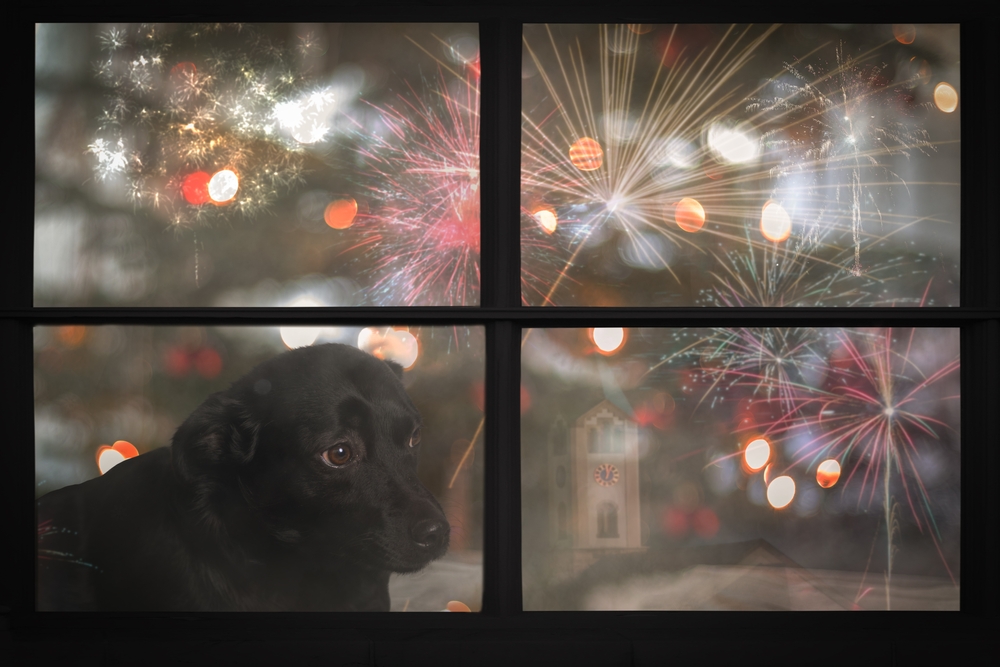
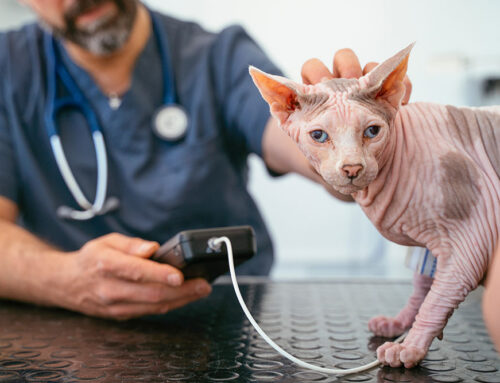
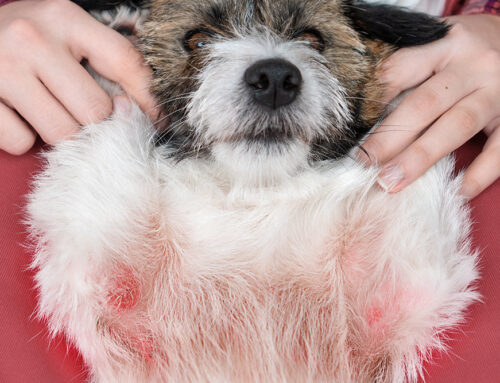
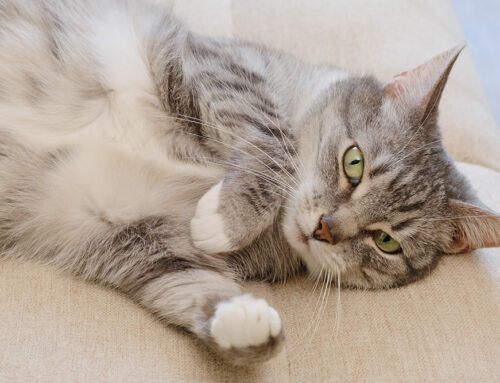
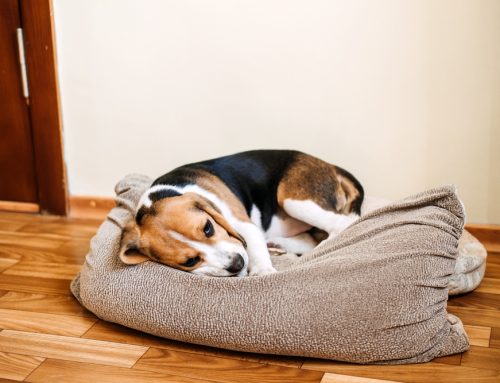
Leave A Comment